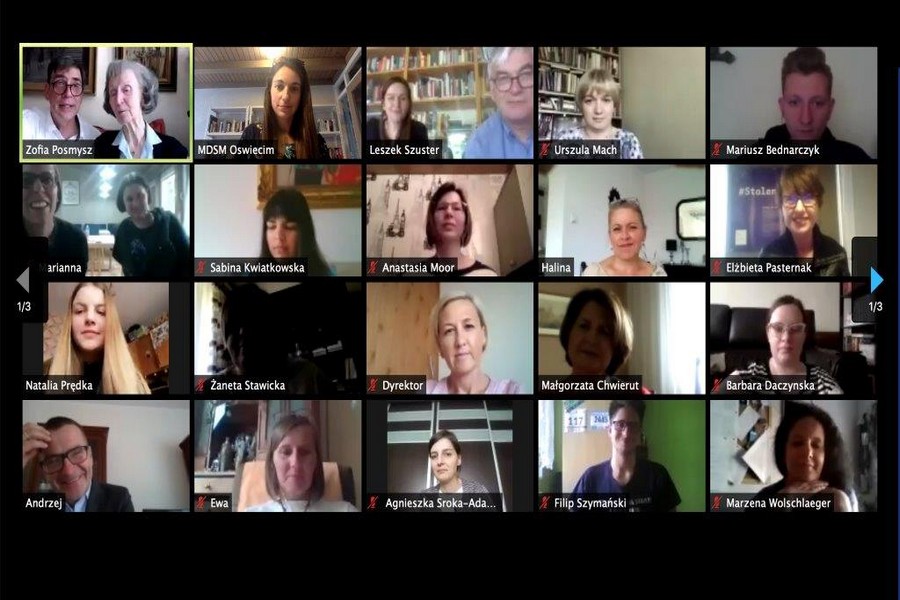
On June 4, an online meeting with Zofia Posmysz took place. It was organized by the IYMC and the Konrad Adenauer Foundation as part of the project "Argument-Biography. Humanistic values in the dehumanized world.” In her Warsaw apartment, Zofia “hosted,” with the help of a monitor, about 80 participants, including, above all, high school students from all over Poland, teachers, and representatives of institutions dealing with the pedagogy of remembrance. The conversation, oscillating around the topic of universal values, such as faith, hope, freedom and love, and their preservation in the nightmare of camp life, was moderated by the director of the IYMC, Leszek Szuster. The basis for the discussion was Zofia Posmysz's short story titled "The Christ from Auschwitz.” With its subject matter, as well as the biographies of the main characters: the author and Tadeusz Paolone-Lisowski, which the participants had an opportunity to get to know before the meeting through the materials that had been provided.
For many of the audience, this was the first confrontation with such vivid testimony about the times of contempt. When asked in the questionnaires about what was most interesting during the meeting, they replied: "the opportunity to hear from an eyewitness,” "how a young person faced the enormity of new, unimaginably difficult experiences and what gave her the hope and strength to live,” "the opportunity to listen to Zofia, meet her, hear her voice, recall important moments in her life, ask her questions.”
Zofia, despite the fact that she does not function in the world of modern technologies on a daily basis, found herself in this unique kind of a meeting, although she emphasized that she would have preferred to meet the participants in person. Nevertheless, the conversation, which lasted almost 2 hours, was a tremendous experience for everyone, which was reflected in the evaluation questionnaires. "I really wanted to hear this amazing story from Zofia's mouth, I would have liked this meeting to have lasted longer, but for obvious reasons it was not possible. Anyway, I am very happy that I took part in it," wrote one of the participants. Subsequent opinions confirm the great importance of organizing such projects: "I have never before taken part in a meeting with a former Auschwitz prisoner - I believe that we should learn more, for the memory of the victims and for future generations,” "I am interested in history and am aware that we are the last generation that can experience such meetings.”
On behalf of the organizers, we would like to thank Mrs. Zofia Posmysz and all the participants of the meeting. We hope to see you again in our Center.
